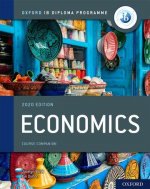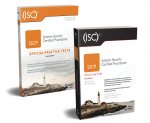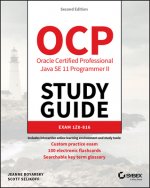
Kód: 08243550
Strategic and Operational Decision-Making
Autor Corey A Givens
The United States and Japan had a very contentious relationship between 1939 and 1941. During this time, Japan's strategic objectives focused on the desire for a policy of national self-sufficiency and of non-reliance on Western i ... celý popis
- Jazyk:
 Angličtina
Angličtina - Vazba: Brožovaná
- Počet stran: 56
Nakladatelství: Biblioscholar, 2012
- Více informací o knize

Mohlo by se vám také líbit
-

Every Child Can Learn
476 Kč -

Word Militant, paperback edition
799 Kč -

History of Nova Scotia or Acadie.
925 Kč -

Brief Notes on Existence
483 Kč -

Ztracený symbol
556 Kč -

Der Zauber der Intimität
226 Kč
Dárkový poukaz: Radost zaručena
- Darujte poukaz v libovolné hodnotě a my se postaráme o zbytek.
- Poukaz se vztahuje na celou naši nabídku.
- Elektronický poukaz vytisknete z e-mailu a můžete ihned darovat.
- Platnost poukazu je 12 měsíců od data vystavení.
Více informací o knize Strategic and Operational Decision-Making
Nákupem získáte 165 bodů
 Anotace knihy
Anotace knihy
The United States and Japan had a very contentious relationship between 1939 and 1941. During this time, Japan's strategic objectives focused on the desire for a policy of national self-sufficiency and of non-reliance on Western imports or economic aid. Its major operational objective was the Dutch East Indies, where Japan imported its oil, rubber, and a number of other goods. Japan fully pursued its objectives as the armed forces provided the foundation for plans to identify, protect, modernize, and expand its national interests. Conversely, the weakness of the United States' military restricted its strategic and operational objectives. One of the strategic objectives for the United States was to uphold the principles of the Open Door in East Asia. However, the United States was unable to embark upon punitive measures to protest Japan's seizure and economic assimilation of Manchuria. America's key operational objective was maintenance of the Philippines, a place from which the United States could project its power. For state actors, keeping the elements of national power, or Diplomacy, Information, Military, and Economy (DIME) in alignment is significant for national stability. An analysis of America's DIME construct reveals how the weakness of the United States' military forced it to rely on the Diplomatic and Economic elements of national power, and this negatively affected the way the United States conducted its strategic and operational decision-making with imperial Japan from 1939-1941. Diplomatically, American policy intended to uphold the Open Door Policy in the Far East; however, its foreign policy was weak because it did not have the necessary military might to back its demands. Therefore, the United States resorted to economic pressure. It implemented a policy of escalating deterrence in an effort to stop Japanese expansion. The economic pressure became too much when the United States deprived Japan of oil, which was a major commodity that the Japanese c
 Parametry knihy
Parametry knihy
Zařazení knihy Knihy v angličtině Society & social sciences Education
1646 Kč
- Plný název: Strategic and Operational Decision-Making
- Podnázev: Does Military Weakness Affect Decisions Made?
- Autor: Corey A Givens
- Jazyk:
 Angličtina
Angličtina - Vazba: Brožovaná
- Počet stran: 56
- EAN: 9781288322473
- ISBN: 9781288322473
- ID: 08243550
- Nakladatelství: Biblioscholar
- Hmotnost: 118 g
- Rozměry: 246 × 189 × 3 mm
- Datum vydání: 21. November 2012
Oblíbené z jiného soudku
-

Oxford IB Diploma Programme: IB Economics Course Book
1594 Kč -

Business Partner B1 Workbook
434 Kč -

Business Partner B1+ Workbook
462 Kč -

Powerful Teaching: Unleash the Science of Learning
665 Kč -

Speed and Accuracy: Division
208 Kč -

Pearson Edexcel AS and A level Mathematics Statistics & Mechanics Year 1/AS Textbook + e-book
469 Kč -

Speed and Accuracy: Multiplication
228 Kč -

Read Write Inc. Phonics: Red Ditty Book Bag Books (Mixed Pack of 10)
1587 Kč -

Amazing Autistic Brain Cards
1015 Kč -

North Korea's Military Threat
698 Kč -

Release Your Inner Drive
403 Kč -

Cambridge IGCSE (R) & O Level Complete Physics: Student Book Fourth Edition
929 Kč -

Embodied Teen
545 Kč -

Business Partner B2 Workbook
462 Kč -

Blue Book of Grammar and Punctuation: An Easy- to-Use Guide with Clear Rules, Real-World Examples , and Reproducible Quizzes, Twelfth Edition
393 Kč -

OET Preparation
246 Kč -

KS3 Maths 10-Minute Weekly Workouts - Year 7
199 Kč -

Vertical Academy
919 Kč -

OET Reading Subtest Preparation
343 Kč -

Grade 9-1 GCSE Maths AQA Revision Question Cards - Higher
242 Kč -

Oxford IB Diploma Programme: IB Theory of Knowledge Course Book
1466 Kč -

Positive Discipline Tools for Teachers
433 Kč -

Oxford IB Diploma Programme: IB Course Preparation Mathematics Student Book
992 Kč -

1000 TRIOS or gapped sentences for Cambridge Advanced and Proficiency Exams
608 Kč -

(ISC) SSCP SG & SSCP Practice Test Kit, 3e
1745 Kč -

Czech Verbs
954 Kč -

Motivation and Reinforcement
1161 Kč -

Pearson Edexcel International GCSE (9-1) English Language B Student Book
1328 Kč -

GCSE Spanish Exam Practice Workbook (includes Answers & Free Online Audio)
220 Kč -

Imagine If...
306 Kč -

Oxford International Primary Maths Second Edition: Practice Book 1
323 Kč -

Vol 2 Blackletter Lettering Adventures
635 Kč -

AS & A Level Maths For Dummies
455 Kč -

Forensic Linguistics Articles
417 Kč -

CompTIA Security+ Review Guide - Exam SY0-601
621 Kč -

Abolition of Man
468 Kč -

Human Landscapes from My Country
656 Kč -

Corrected Squares of The Book of Abramelin
14513 Kč -

Hanbo Jutsu: Use of Hanbo, Cane and Walking Stick for Self Defense
284 Kč -

Reading Mind - A Cognitive Approach to Understanding How the Mind Reads
556 Kč -

KS3 Maths 10-Minute Weekly Workouts - Year 8
199 Kč -

Exam Prep for Microeconomics by Pindyck & Rubinfeld, 6th Ed.
1089 Kč -

English Language & Literature WORKBOOK: York Notes for GCSE (9-1)
237 Kč -

Effect of Registration Errors on Tracking in a Networked Radar System
1646 Kč -

Cambridge IGCSE (R) & O Level Complete Chemistry: Student Book Fourth Edition
992 Kč -

Princeton Review SAT Premium Prep, 2021
1136 Kč -

CEH v11 Certified Ethical Hacker Study Guide + Practice Tests Set
1872 Kč -

10 Practice Tests for the SAT, 2021 Edition
841 Kč -

OCP Oracle Certified Professional Java SE 11 Programmer II Study Guide - Exam 1Z0-816 and Exam 1Z0-817
1336 Kč
Osobní odběr Praha, Brno a 12903 dalších
Copyright ©2008-24 nejlevnejsi-knihy.cz Všechna práva vyhrazenaSoukromíCookies



 Vrácení do měsíce
Vrácení do měsíce 571 999 099 (8-15.30h)
571 999 099 (8-15.30h)